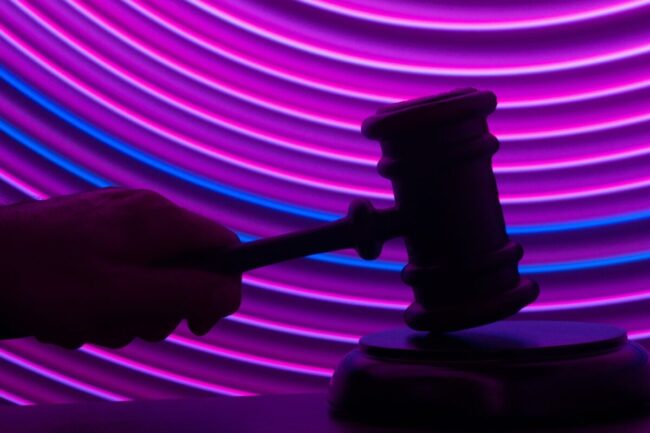The landscape of content creation has undergone a transformative shift with the rise of digital platforms. In the past decade, the emergence of services like OnlyFans has drastically altered the way content is distributed and monetized.
These platforms allow individuals from all walks of life to share their creative output directly with audiences, bypassing traditional media channels such as newspapers and television.
This democratization of content creation has opened new avenues for creators but also introduced new complexities and ethical considerations.
The Changing Landscape of Content Creation

Who Creates and How It’s Monetized:
- Platforms like OnlyFans have democratized content creation by enabling anyone with internet access to publish and monetize their content directly.
- Unlike traditional models that require going through publishers or broadcasters, these platforms allow creators to connect directly with their audience and benefit financially through subscriptions or pay-per-view models.
Contrast with Traditional Platforms:
- Traditional media often involves multiple layers of editorial control and a significant investment in production. This contrasts sharply with the immediacy and personal nature of platforms like OnlyFans, where content can be more raw and personal.
- Revenue models in traditional media typically revolve around advertising and sales, while platforms like OnlyFans focus on direct monetization from consumers.
Legal Challenges in Modern Content Creation
Navigating Copyright Laws:
- Digital content creators must navigate the complexities of copyright laws, which were not designed with the rapid shareability of online media in mind.
- Copyright issues arise frequently when creators use music, clips, or images without proper authorization, leading to potential legal action.
Real-Life Legal Issues:
- Many creators have faced legal challenges due to copyright infringement or privacy violations. For example, using copyrighted music without permission or sharing content that includes other people without their consent can result in significant legal repercussions.
Ethical Considerations in Content Creation
Balancing Creativity and Sensitivity:
- Creators must balance their desire for creative expression with the need to respect privacy and avoid content that could be considered insensitive or harmful.
- The ethical considerations become even more complex when content touches on sensitive topics or uses imagery that might be controversial.
The Role of Content Moderation:
- Content moderation is crucial in maintaining a safe online environment, but it also raises questions about censorship and freedom of expression.
- Platforms must find a balance between removing harmful content and supporting creators’ rights to free expression.
Navigating Legal Needs as a Content Creator

In today’s digital era, understanding the legal landscape is vital for content creators who wish to protect their creative outputs and operate within the bounds of the law. As digital platforms continue to evolve, the associated legal challenges become increasingly complex, requiring creators to stay informed and proactive.
Understanding Legal Protections:
-
Copyright Laws and Regulations:
- Content creators must have a thorough understanding of copyright laws, which govern the use and distribution of creative works. Knowing what is permissible to share or sell online is essential to avoid copyright infringement.
- It’s crucial to understand the specifics of using music, images, and video clips, which often require licenses or permissions from the copyright holders.
-
Privacy Laws:
- Privacy is another significant concern, especially for creators who incorporate real-life interactions or personal data into their content. Familiarity with privacy laws is essential to ensure that the content does not violate any regulations concerning personal privacy or data protection.
- This includes obtaining consent from individuals featured in videos or those whose data might be collected through interactive platforms.
Utilizing Legal Advice:
-
Avoiding Legal Pitfalls:
- Professional legal advice can prevent costly mistakes and potential litigation. A lawyer specializing in intellectual property can provide tailored guidance, helping creators navigate the legalities of their work.
- Regular updates and consultations are advisable as laws can rapidly change, especially in sectors like digital media and online content creation.
-
Staying Within Legal Boundaries:
- Keeping abreast of new laws and amendments is crucial for creators. This ensures all content is up-to-date with current legal standards, safeguarding against inadvertent violations.
- Legal advisors can also assist in contract negotiations, protecting creators’ rights when dealing with sponsors or partnerships.
How Essay Writing Services Can Assist

For content creators facing the intricate legalities of their profession, essay writing services offer invaluable support by drafting essential legal documents tailored to the digital landscape.
Drafting Legal Documents:
-
Copyright Notices and Privacy Policies:
- Having professionally drafted copyright notices is crucial for protecting intellectual property. These documents ensure that creators’ rights are clear and enforceable.
- Privacy policies are equally important, particularly for creators who collect user data. These policies must comply with international data protection laws, which can be complex and vary significantly between regions.
-
Customized Legal Documents:
- Legal documents can be customized to fit the specific needs of a creator’s platform and content type. This customization ensures that all legal bases are covered, from user interaction to content monetization strategies.
Anchor Usage:
- For those unsure about the legal aspects of content creation, WritePaper provides a straightforward solution. By opting to “pay someone to write my paper on WritePaper”, creators can access expertly crafted legal documents, ensuring their work is protected and their practices comply with applicable laws.
Best Practices for Content Creators

Adopting best practices in legal and ethical matters is essential for maintaining credibility and ensuring long-term success in content creation.
Practical Tips:
-
Regular Updates on Legal Documents:
- Creators should regularly review and update their legal documents to reflect any changes in the law. This proactive approach prevents compliance issues and ensures ongoing protection.
- Updating terms of service, copyright notices, and privacy policies should be part of a regular review cycle.
-
Transparency with Audiences:
- Building trust with an audience is crucial. Creators should maintain transparency, particularly regarding sponsored content or advertisements. Clear disclosure of sponsored content fosters trust and adheres to advertising standards.
Consulting with Experts:
- Establishing a relationship with a legal advisor who understands the nuances of digital content creation is invaluable. Such expertise can guide creators through the complex legal landscape of online media.
- Professional services for drafting complex legal documents can prevent potential legal challenges, providing creators with peace of mind and allowing them to focus on their creative endeavors.
Conclusion
The digital age offers unprecedented opportunities for content creators, but it also introduces a range of legal and ethical challenges.
Navigating these challenges successfully is not merely advisable; it’s essential for anyone looking to sustain a successful career in content creation.
Creators are strongly encouraged to seek professional help to navigate these waters safely and effectively, ensuring that their creative projects are not only innovative but also compliant with the law and ethical standards.
This proactive approach in managing legal and ethical issues will safeguard creators’ interests and enhance their professional reputation in the ever-evolving digital landscape.
